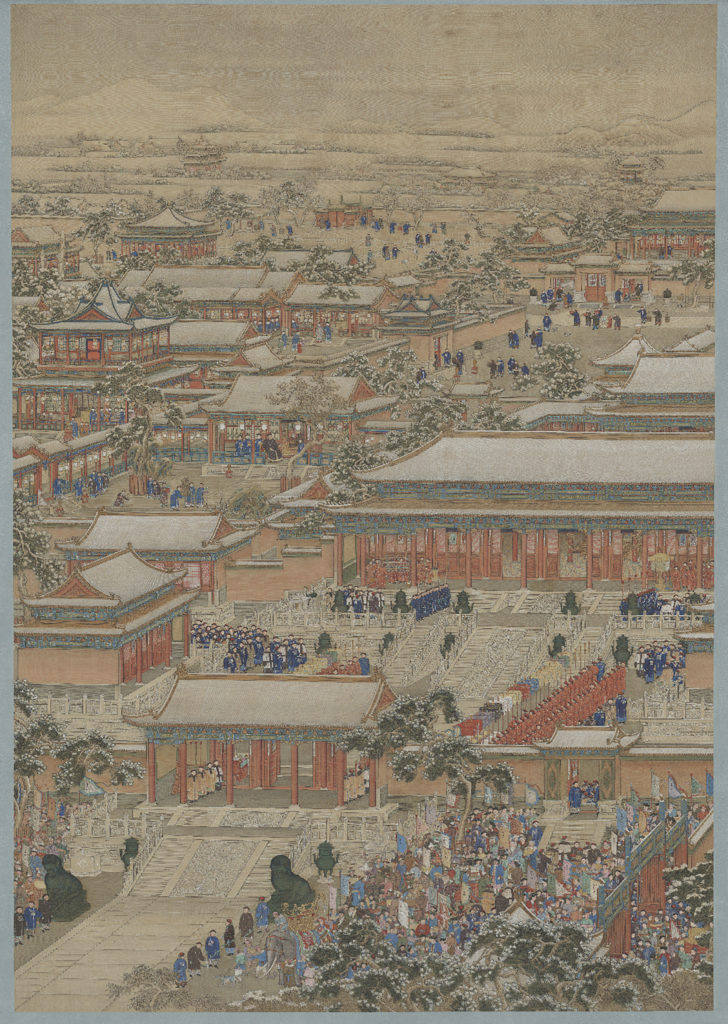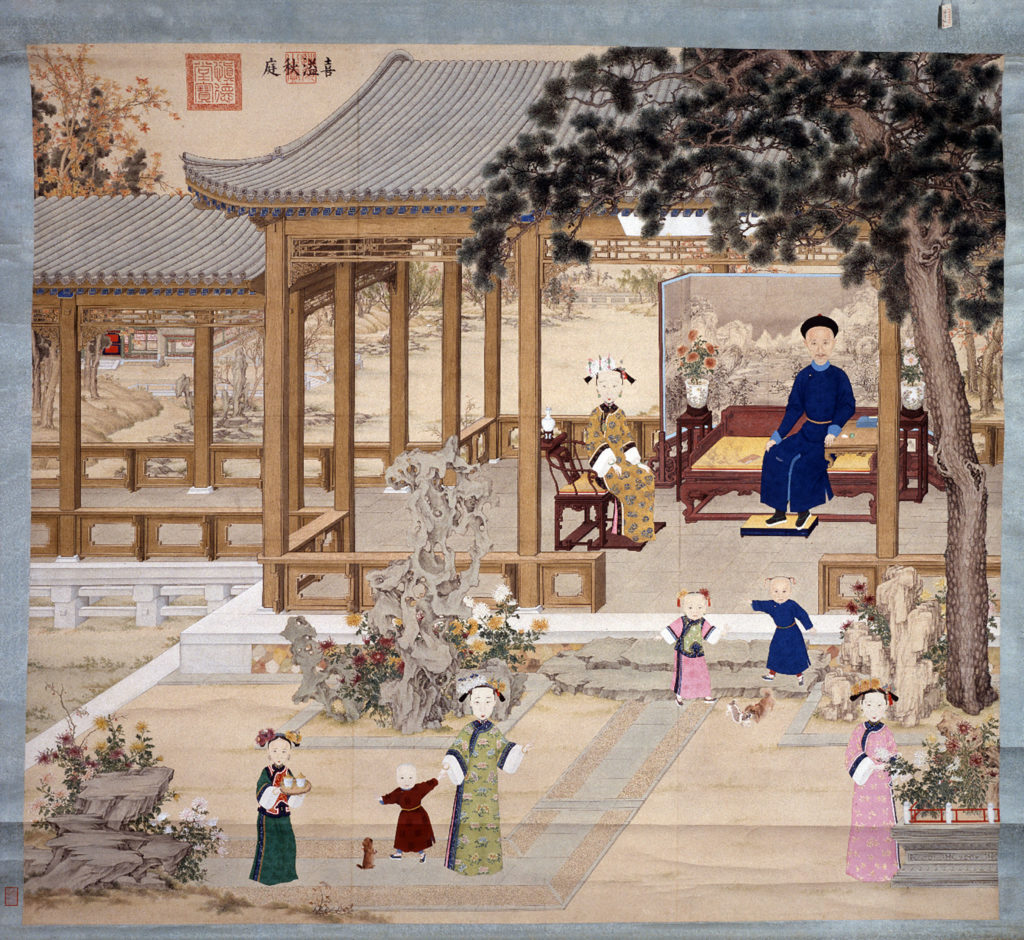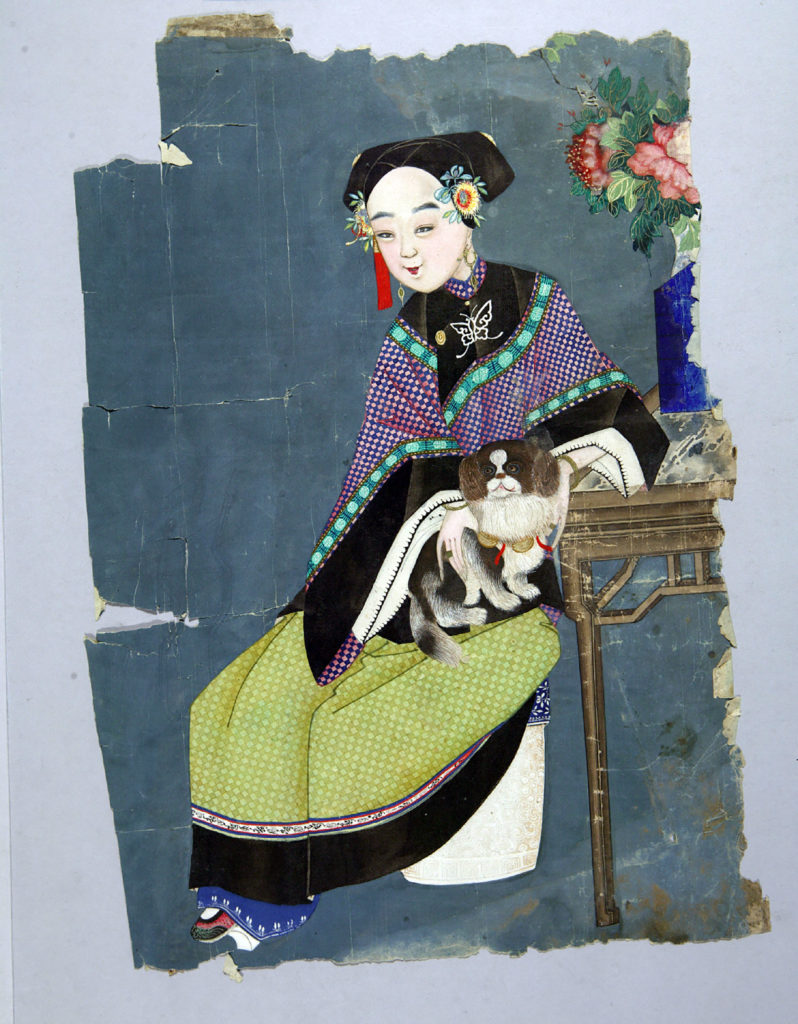The Forbidden City kept a large number of animals, some of which were tributes offered by overseas countries, such as swans from Netherlands as well as rhinoceroses, elephants, and peacocks from Siam (Thailand). Local officials also offered tributes, such as tigers, hawks, and horses. The Imperial Household Department was responsible for keeping and maintaining all kinds of exotic animals and birds, and it established the imperial stables to maintain the horses. The Imperial Procession Guard established an elephant training office, and the Forbidden City included a menagerie, a gyrfalcon and hawk aviary, kennels, and a dovecote.
Due to the Qing court’s love of dogs, the Imperial Household Department established the imperial kennels to raise and train the emperor’s hunting dogs and pet dogs for pleasure. According to records in the Draft History of Qing (Qingshi gao), “there is no limit on the number of ministers at the gyrfalcon aviary and imperial kennels. …the imperial kennels have two commander-generals. Five Junior Guardsmen; ten serve as deputy leaders, with nine Sixth rank officials and one Seventh rank official.” One of the more well-known commander-generals was Cao Yin, the grandfather of Cao Xueqin, who authored Dream of the Red Chamber.





